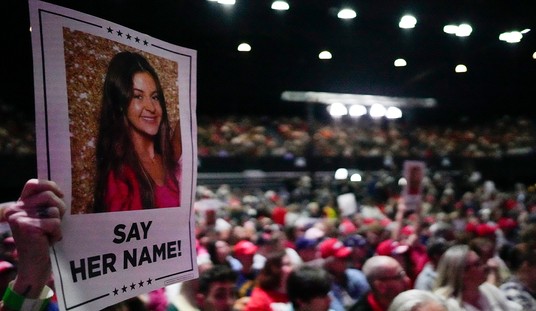Your name is Aisha and you are fifteen years old. You live in Dearborn, Michigan, and your parents are Muslim. So were you once, but it isn’t so easy now. When you were little, you could play with your friends from school, do cartwheels — and laugh. Then, aged nine, your life changed. Your parents made you wear the hijab. At first you didn’t mind; all girls like to dress up. But you got fed up with it; it got in the way when you wanted to do cartwheels. “It’s for your own good,” they said. “It will stop the boys looking at you in a bad way. And you shouldn’t be doing cartwheels now — it could damage you.” You didn’t know quite what they meant, and you couldn’t see why boys would want to look at you — the boys at school played with other boys. But when you asked your parents, they said again that it was for your own good.
As time went on, your parents got more strict about the hijab. By the time you were thirteen, they would hit you if you didn’t wear it — not really hard and never on the face, but hard enough. It didn’t seem fair. You looked different and sometimes it felt hot and sticky. Your classmates could wear what they liked — except Shabnum, who had to wear it too. Shabnum was cheeky, though. She would take it off during the day and put it back on to go home. One day she forgot to put it back on; you had been having such a good time after class, not doing cartwheels — that’s kids’ stuff — but talking to some boys. The next day, Shabnum was not in class and you never saw her again. Your brother Khalid said she’d been taken to Pakistan to get married. “That’s impossible — she’s only thirteen.” “That’s old enough,” said Khalid. “The prophet, peace be upon him, married Aisha when she was six and consummated the marriage when she was nine.” “What’s consummated?” you asked. No answer.
By the time you were fourteen you knew what consummated meant and what happened to the other Aisha long ago, at an age when you were doing cartwheels. You didn’t think Mohammed was much of a prophet and said so to your father. He beat you black and blue — on the legs, the arms, the stomach, but not on the face. Your hijab covered the bruises, “so you won’t bring shame on the family,” your mother said. “Time she got married or there will be more trouble,” said your father. Khalid started taking you to school and back every day, so you wouldn’t talk to any boys.
Now you’re fifteen. You haven’t told your parents, but you don’t want to be a Muslim anymore. You hate wearing the hijab and would tear the damn thing up — but you’re afraid of another beating. You don’t discuss Islam with your father — the beating put a stop to that, too. Your friend Susan doesn’t know about the beating, but she says it’s wrong to make you wear the hijab. “This is America. You have rights. Women are equal here.”
True, you think, and we’ve got a new president, Barack Obama. He’s not right-wing, like George Bush. He’s a Democrat who believes in equal rights. He’s black, an outsider, so he’ll know how you feel. And some of his family are Muslim. He says he wants to reach out to Muslims. He’ll speak for you. Then you hear his Cairo speech:
It is important for Western countries to avoid impeding Muslim citizens from practicing religion as they see fit — for instance, by dictating what clothes a Muslim woman should wear. We cannot disguise hostility towards any religion behind the pretense of liberalism.
You laugh. Not the carefree laugh of your childhood, but a hollow, bitter laugh.
Aisha is fictitious, but Amina Said, eighteen, and her sister Sarah, seventeen, were not. They were killed for having boyfriends. In Canada, sixteen-year-old Aqsa Parvez was strangled by her father Muhammed for refusing to wear the hijab.
Shabnum, the girl forced into marriage at thirteen, is fictitious, but the teenage girls from Manchester, England, forced to marry their cousins in Pakistan, are not:
She told her elder daughter that if she didn’t have sex with her new husband, she would tie her to the bed, blindfold and strip her, a court heard.
There are countless Shabnums, countless Aishas in the West, as well as in Muslim countries, as the writings of Phyllis Chesler testify. And every one of them would happily have her father, mother, or brothers “impeded … from practicing religion as they see fit.” Every one of them would dearly love to be rescued by what Obama fatuously calls “the pretense of liberalism.” “Impede. Pretend,” Amina, Sarah, and Aqsa would beg — were they still alive.
Obama would protest, of course, that he does not condone forced marriages or honor killings; indeed he says, in his Cairo speech, that women should be free to choose “traditional roles.” But how free is that choice, in a family where Islam can be exercised “unimpeded”? Amina, Sarah, the two English girls, and all the Shabnums and Aishas could answer that for you.
Hugh Fitzgerald, who writes for New English Review and Jihad Watch, could not stomach Obama’s remark:
“The pretense of liberalism.” Freedom of speech, freedom of thought, free exercise of conscience, and of course the freedom of women from an ideology that, in every conceivable way, every conceivable “liberal” way, oppresses them. … Merely a “pretense of liberalism.”
No American should stomach it. Nor should any citizen of the free world.









Join the conversation as a VIP Member